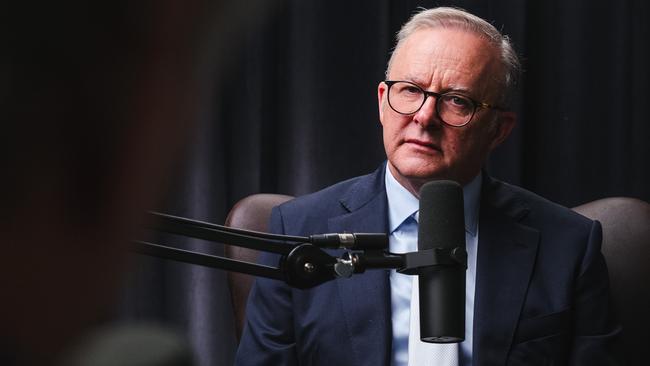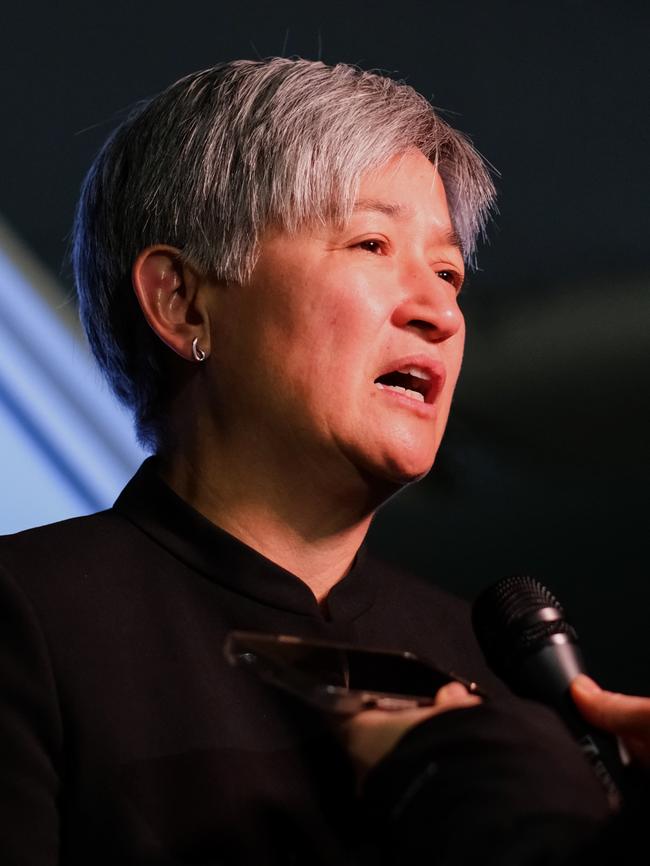‘Evil’ silence from Canberra on threat to national security

The government is not responsible for individual violent incidents across our cities, but it is responsible for informing, reassuring and protecting the public. Yet the current malaise of leadership is feeding anxiety and infecting the social cohesion that has stood Australia apart from much of the world despite decades of global terrorism and conflict.
Australia remained united in the face of terrorist plots from al-Qa’ida, attacks by ISIS, wars in the Middle East and Afghanistan, the malicious rise of China, and Russia’s war in Europe. But we are cracking; rising anti-Semitism and national fear shows domestic division is even more insidious than international incidents.
The government’s systemic abdication of responsibility, cloaked in silence and evasive justifications, is not a one-off relating to the caravan plot against Australia’s Jewish community but a troubling trend, exemplified by the tactic of Prime Minister Anthony Albanese and ministers only commenting if asked by media and, even then, answering with non-statements.
Australians are not naive. We understand the need for operational secrecy in matters of national security and that classified intelligence should not be divulged lightly. But “operational details” cannot be a catch-all excuse to deflect legitimate scrutiny or hide truth.

Uncertainty breeds fear so governments must be on the front foot. Almost within the hour of Japan bombing Pearl Harbor, US president Franklin Roosevelt was instructing his press secretary to immediately inform the media. While not comparable events, the principle is key: keep the public informed and confident that its government is in control even in the most challenging times – even more important in the digital age.
Albanese’s refusal to address questions about the explosives-laden caravan, due to “ongoing investigations”, added to confusion, anxiety and speculation. A stonewalled public is not a secure one. Similarly, his reluctance to clarify whether he discussed China’s sonar pulse attack on Australian navy personnel in a meeting with Xi Jinping just days after the incident in November 2023, citing the confidentiality of diplomatic talks, simply resulted in doubt and more questions.
While discretion in diplomacy is essential, selective silence is inconsistent given the broad topics of leaders’ meetings, if not the exact words, are usually published, and suggested he just didn’t want to admit he had inexcusably failed to raise the matter.
Foreign Minister Penny Wong’s handling of the case of Yang Hengjun, the Australian arbitrarily detained in China, is equally disconcerting – failing to even acknowledge on January 19 Yang’s sixth year of detention, and previously insisting on being “constrained for privacy reasons”, despite Yang’s own desire for public advocacy. Hiding behind the veil of privacy appears less about protecting Yang’s interests and more about protecting the government’s.
This week marks one year since Beijing sentenced Yang to death so a comprehensive condemnation and demand for release is required. Similarly, Wong omitted to mention China in her readout of January’s discussions with US Secretary of State Marco Rubio, in contrast to Japanese Foreign Minister Takeshi Iwaya’s honesty that China was a central part of his meeting with Rubio.


Meanwhile, when asked about the US and European countries reviewing the security risk of Chinese-made smart cars, Energy Minister Chris Bowen said no such review would happen here as the priority was consumer choice. On that basis, we’d welcome Russian gas or perhaps Iranian nuclear know-how, not to mention that prioritising price now will mean consumers in the future will have few choices but Chinese-made smart cars.
The pattern of evading, ignoring or downplaying security threats is itself a security threat. It erodes public trust – and cynicism can quickly turn to conspiracy. It creates an information vacuum to be filled by conspiracy theories and speculation, leading not just to an uninformed but a misinformed public. And it has the potential to weaken Australia’s strategic position by reducing the confidence of our allies and increasing that of our rivals.
We’ve seen it before. The flood of illegal boats from 2008 and refusal to acknowledge pull factors created not only a backlash against illegal immigration but reduced confidence in legal immigration and emboldened criminal organisations. It was only by being upfront about the illegal immigration problem that confidence was restored in Australia’s strength as a migration nation.
Importantly, division is distinct from difference. Different opinions, including on world leaders or policies, are to be promoted as the basis of freedom of speech. But support for terrorist groups and acts of intimidation and violence are not free speech.
Our longstanding national resilience means the cracks can’t be papered over but can be resealed quickly by a government willing to lead, including with some good old-fashioned naked truth.
Justin Bassi is executive director of the Australian Strategic Policy Institute.





They say silence breeds contempt but the reticence of the Australian government about national security threats is more akin to the quote attributed to Dietrich Bonhoeffer when resisting Nazi Germany: that “silence in the face of evil is itself evil”.